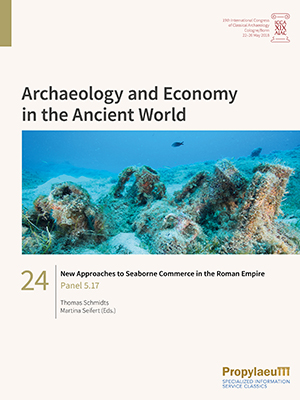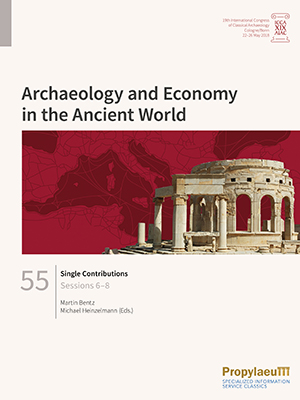Pace, Gloriana
New Approaches to Seaborne Commerce in the Roman Empire: Panel 5.17
Seaborne commerce in the Roman Empire is characterised by a remarkable efficiency for the pre-modern world. From Egypt to Britain, trade connections can be proven on the basis of archaeological finds. The range of these activities includes the Mediterranean, the Black Sea and parts of the north-eastern Atlantic. Important reference points for the assessment of Roman merchant shipping are ports, ships and cargo remains. Due to the large number of known shipwrecks and ports, archaeology in particular can contribute to a better understanding of maritime trade.
The contributions address various aspects of the "seaborne commerce" with a broad methodological spectrum. In addition to wreck finds, the relevance of inscriptions on amphorae and other cargo remains are considered as well as the formation of networks, the reconstruction of ship routes and the performance of ancient watercraft based on experiments.
Sessions 6–8, Single Contributions
Economic aspects permeate all areas of public and private life in ancient societies, whether in urban development, religion, art, housing, or in death. Research on ancient economies has long played a significant role in ancient history. Increasingly in the last decades, awareness has grown in archaeology that the material culture of ancient societies offers excellent opportunities for studying the structure, performance, and dynamics of ancient economic systems and economic processes. Therefore, the main objective of this congress was to understand economy as a central element of classical societies and to analyse its interaction with ecological, political, social, religious, and cultural backgrounds. The theme of the congress was addressed to all disciplines that deal with Greco-Roman civilization and their neighbouring cultures from the Aegean Bronze Age to the end of Late Antiquity.
This collective volume contains single contributions from sessions 6, 7 and 8, which discuss questions about consumption and investment in everyday life, sanctuaries and urban contexts, as well as questions about the role of the city in the ancient economy.








